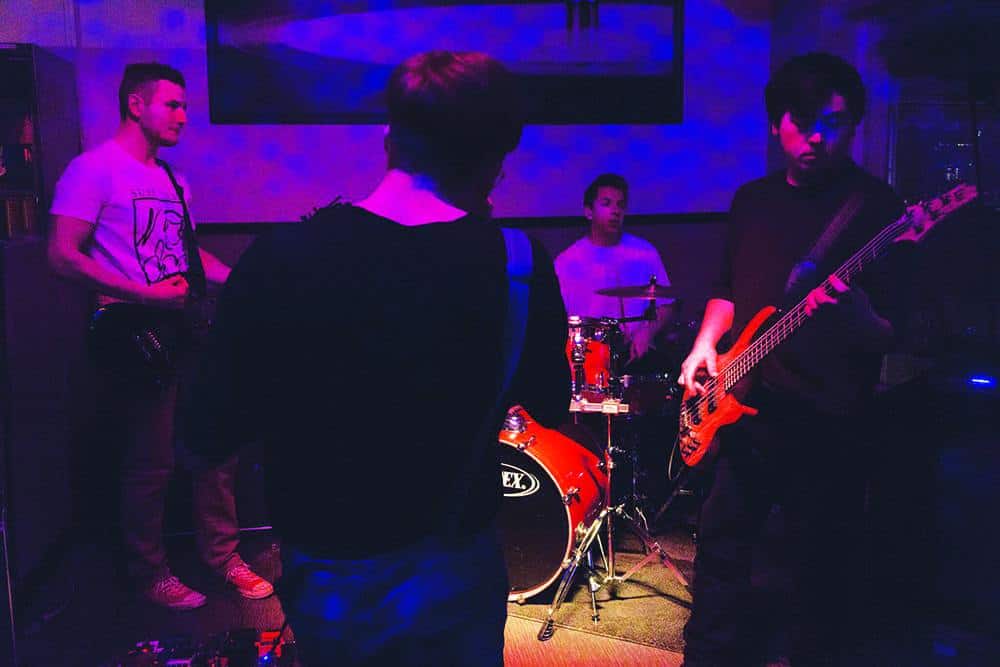Free FGSR event to discuss student supports
In an effort to improve the experience for graduate students at the University of Regina, the Faculty of Graduate Studies and Research (FGSR) is hosting their Graduate Development Conference on Sept. 28. The event includes eight sessions on subjects such as time management, presentation skills, and a primer on Canadian copyright law.
For Benjamin Freitag, the organizer of the event and special projects coordinator for FGSR, the conference is a chance to further support graduate students.
“The goal of it is just to try to put a lot of our professional development sessions into one place so that students who are looking to gain a better understanding of how to do graduate work, or need some skills can get to it.”
FGSR has attempted to make the event accessible by hosting it on a weekend in order to allow for participants to have scheduling flexibility. Freitag pointed to a mental health-related session as one he has circled on his calendar
“I’m a big fan of the mental resilience workshop. This done through counseling services and graduate students have a higher proportion of mental health issues and so I feel one of the better ways to tackle that is to try to build up your own personal resilience through even identifying early signs and knowing when to get help and when to get help early.”
Presenters include Dr. Kathryn Ricketts from the Faculty of Education, the library’s Cara Bradley, and the Student Success Centre’s Dr. Alexis McQuigge, Freitag pointed to the interdisciplinary nature of the event as one of its selling points.
“It’s meant to be for every student and not discipline-specific. We try to provide a broader envelope of support for graduate students.”
Undergraduate student Katelynn Kowalchuk, is someone interested in what other university’s are doing in terms of conferences.
“So generally speaking, this is kind of something that happens across the board is that disciplines tend to stick to their own, we don’t really talk to people outside of our immediate groups. So you might have a bunch of Poly-Sci majors, who are doing really incredible research, who aren’t talking with people in the Econ department, people who are in Women and Gender Studies, and vice versa. So, I feel like there’s a lot to be gained by having those open avenues of communication… specifically in regards to research.”
Freitag hopes to have a research-focused conference in place for January.
Kowalchuck provided examples of what kind of avenues she would like to see explored and stressed that its a need that is as true for undergrads as it is for those in graduate work.
“So there are two specific examples that come to mind, one of them is M.U.R.C that happens at the UBC. The abbreviation is Multi-Disciplinary Undergraduate Research Conference, and it’s a conference that happens at the UBC for all undergraduates both in a presentation format and also in poster format, and that’s one event I’m a really big fan of. I feel like conferences not only get the research out there for discussion and for contemplation, but they also open those casual conversations you would have at supper time and that sort of thing. The second example I’m a big fan of is the UJPPS at U-Ottawa, which stands for the Undergraduate Journal of Politics, Policy, and Society, and, even though the title might only suggest that it’s for Poly-Sci or Ecom majors, it’s all Arts undergraduates, as well as Social Sciences and the like. And they’ve published some, really, really cool stuff in the past from a variety of voices all across Canada, and I feel like there’s definitely room at the University for both a conference type event, as well as a journal publication. I feel like both of those would be really beneficial to the undergraduate research community.”
Freitag said that the main focus of the event is to highlight the work of FGSR and create common ground for graduate students
“The number one thing is that the Faculty of Graduate Studies is here to support students. If I can get that kind of attitude and message across is number one. Number two, the reason we’re paying for lunch and having an hour for lunch is to try to create some connections between people and get people talking to each other, especially interdisciplinary, to try to get students who may not have had a chance to meet each other a social opportunity to feel that sense of community . . . The spark that could create that sense of community later on.”
The Graduate Development Conference runs from 9:00 a.m. to 3:00 p.m. in ED 312 and 3:15. The event is free, but students do need to register. Zoom and registration links are available at the event’s website, https://www.uregina.ca/gradstudies/current-students/ProfessionalDevelopment/GraduateConference.html
with files from John Loeppky









